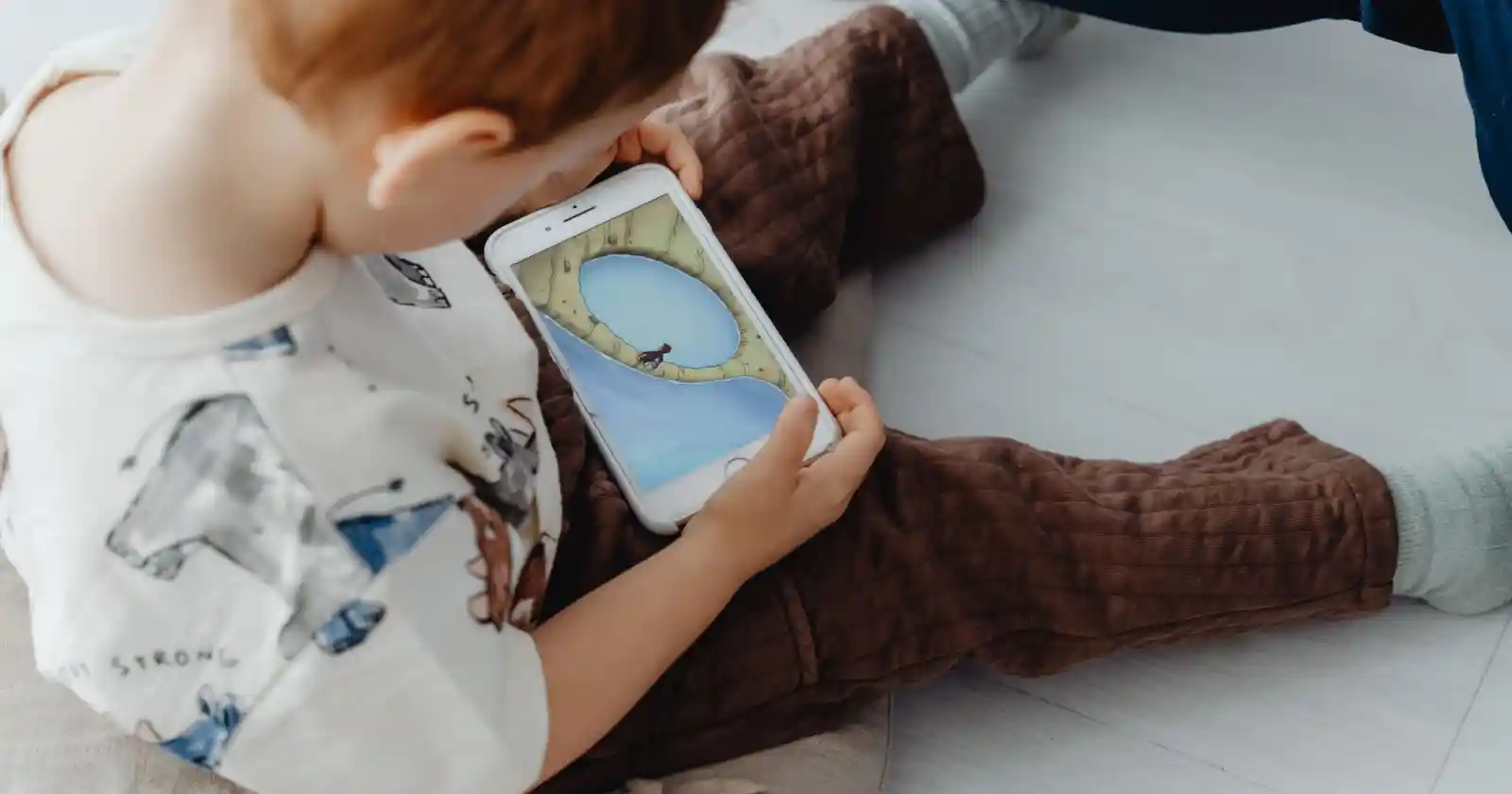Parenting Trends 2025 are expected to be promising with the influence of new social norms, advancements in technology, and a growing focus on mental health. Post-pandemic, conversations around childhood trauma, breaking generational cycles, and mental health have become more common. Many parents are rethinking their approaches to raising children.
However, not all popular trends are beneficial. Some of the current parenting trends, though well-intentioned, might actually be doing more harm than good. As we look ahead to parenting trends 2025, it’s time to question some of the trends that have been gaining popularity.
Parenting Trends 2025
In 2025, Parenting Trends are likely to highlight positive practices of new age parenting, such as mindful parenting, gender-neutral approaches, responsible use of technology, eco-consciousness and flexible – involved parenting. Mental health awareness will also be a central focus. Learn more about these innovative methods in New age parenting: Modern parent’s inspiring techniques for 2025.
Current Parenting Trends That Need Reevaluation in 2025
1. The Gentle Parenting Hype
Gentle parenting is undoubtedly a positive approach, offering numerous benefits such as building family bonds, supporting emotional health, and promoting overall wellness throughout a child’s development. However, the growing trend of overuse and misinformation about gentle parenting has led to confusion and misunderstandings about its true principles.
- Permissive Parenting:
Gentle parenting and permissive parenting are not the same. Sometimes, due to a limited understanding, people may practice permissive parenting, thinking they are following gentle parenting principles. This misunderstanding can lead to a lack of boundaries and discipline, which can negatively impact both the child’s behavior and their overall developmental pattern. - Parents’ Mental Health:
The pressure to be overly gentle can cause significant stress for parents, especially when they feel compelled to avoid setting limits or expressing their own emotions. This is one of the challenges posed by the current trends in parenting.
- Mom Guilt:
The overhype surrounding gentle parenting can evoke feelings of guilt. Parents may feel less confident about their parenting style, developing self-doubt when they are being supportive, strict, or lenient. This can lead to a constant sense of guilt, negatively affecting their overall approach to parenting and preventing them from fully enjoying parenthood. - Co-Parenting Dynamics:
In cases of co-parenting, the situation can become even more complex when one parent adheres strictly to gentle parenting principles while the other does not. This can cause stress, conflicts, and challenges for both parents.
Parents who want to practice gentle parenting should avoid falling for false information and focus on understanding its true essence. Maintaining balance and avoiding obsession are the two main factors for gaining the benefits of gentle parenting.
2. Growing Up on Social Media
An important topic that warrants reevaluation when discussing parenting trends for 2025 is the growing issue of sharenting and family vlogging.
Just because we live in an online era and see social media influencers sharing details about their children doesn’t mean we should follow that trend. Oversharing about our children on social media should be approached with utmost care. Influencers may not fully showcase their kids, and their goals and lifestyles may differ from ours. Instead of simply following the trend, we need to reassess our own lifestyles and principles before documenting our child’s milestones and growth online.
No one can predict how these details will affect our children as they grow into adulthood. This trend has become absurd, with people sharing videos of their children’s private moments, such as pooping, emotional outbursts, or intimate interactions. It’s essential to respect their privacy and consider the long-term impact of what we share as parenting trends 2025 evolve. Having a clear picture of what to share and what to keep private can help you enjoy connecting with your social circle and make better use of social media.
3. Kids in Grown-Up Outfits
The trend of dressing kids in adult-like clothes has been normalized, but it raises questions about fashion sense. While it may appear stylish or cute, it completely ignores the primary goal of selecting children’s outfits: their comfort, identity, and developmental needs. Dressing children in clothing meant for adults can obscure their natural innocence, and this trend sometimes includes inappropriate or odd choices. Let children thrive freely in a safe, judgment-free environment until they grow up and can make their own style choices.
4. The YouTube Teacher
The increasing reliance on YouTube for teaching toddlers to speak or learn new skills is a growing trend among parents. Many parents proudly share that their children have learned to speak or acquire new skills by watching these videos. However, it’s important to recognize the need for balancing screen time.
These video tutorials offer numerous benefits and are often created with good intentions, but it’s time to re-evaluate this practice. Relying solely on YouTube or other apps can lead to a lack of real connection and bonding that typically occurs during learning sessions with a parent. This bonding is really important for a child’s development.
Parents should remain the primary educators, providing personalized attention and support that videos cannot offer. Every child is unique, and only a parent or caregiver can effectively nurture their individual skills and personality at this early stage. Therefore, the virtual world should not replace human involvement in a child’s early learning experiences. If parents choose to use video classes, they should only serve as a supplement or support. Parents can even compensate for this by sitting with their toddlers during screen time and actively participating in their learning process.
Striking a balance allows children to benefit from both educational videos and the irreplaceable human connection necessary for their development and personality growth.
5. The Yummy-Viral Recipes
Sometimes, an obsession with healthy meals can lead parents in the wrong direction. Today, certain recipes quickly become trendy, often claiming to be especially healthy or nutritious. It’s tempting to follow these viral, visually compelling recipes seen online. However, before following them blindly, make sure these so-called healthy meals are actually beneficial for your baby. Even healthy foods should not exceed daily nutritional requirements, and some combinations can have negative effects.
Many videos focus on enhancing taste, variety, and standing out online, completely neglecting long-term outcomes. The current parenting trend of copying what is seen online, believing it’s the best for children without verifying, should be reconsidered.
6. The Hyper-Aware Parent
The trend of hyper-awareness among parents is becoming increasingly common. Parents now have access to an abundance of resources, online education, support, guidance, and communities. However, there is confusion regarding how much information is too much. If not managed properly, hyper-awareness can disrupt daily routines, leading to excessive focus on details, worrying over minor issues, or striving for perfectionism.
Parents might even suspect serious disorders based on normal behaviors or minor symptoms, influenced by information they’ve encountered. This information overload can negatively impact their mental health and the parent-child relationship, potentially shaping the child’s future in unintended ways. Alarmingly, this trend extends to doubting professionals, as parents question whether their own research is more accurate than expert advice.
7. The No-Boredom Approach
The trend of keeping kids constantly engaged seems to be growing, but the reasons behind this mindset are unclear.
- Examples:
- Kids absorbed in phones while sitting in shopping carts as parents shop.
- Kids watching videos while waiting at restaurants, missing family bonding time.
- Children spending hours in front of the TV while parents work or asking for video games to fill short breaks.
These examples reflect a trend where children become unaware of the world around them. Parents may overlook the benefits of letting children experience downtime, explore their surroundings, and solve their own challenges. Such experiences help develop logical reasoning and problem-solving skills, essential for a successful future.
8. The Glorified Parenting Trend
Being proud of one’s own parenting style is perfectly acceptable. However, belittling others and comparing different parenting styles while glorifying one’s own is becoming a troubling trend. This often includes parents boasting about their child’s early milestones or emphasizing their own challenges, such as managing more tantrums, as a measure of being a good parent.
Such comparisons and judgments can undermine another person’s confidence and mental health. As we reflect on Parenting Trends 2025, many wish that the toxic social media mom groups could improve, creating a more supportive and accepting environment for all parenting styles. Glorifying personal achievements like no screen time, sleep training, or feeding choices while criticizing others’ methods should be reconsidered. Every parenting style has its pros and cons. It’s essential to recognize that every family has unique circumstances, and acceptance of diversity and mutual respect should be encouraged.
Reflections from Mindful Portrait

Trends are temporary, but the parenting approach we adopt can have a lasting impact on our children. Once childhood is over, it’s gone. Therefore,while considering Parenting trends 2025, be mindful of your decisions and avoid simply following what is popular . Rely on your own assessment and confidence in your parenting style. Ensure that you are socially responsible and empathetic in your approach. A focus on a healthier, supportive parenting journey benefits both your mental health and your child’s future. Be true to yourself and let your kids be who they are. If you’re looking to bring more mindfulness into your daily life and cultivate personal well-being in 2025, discover 30 unique mindful hobby ideas to explore, which can support your mental health and improve your family life.

